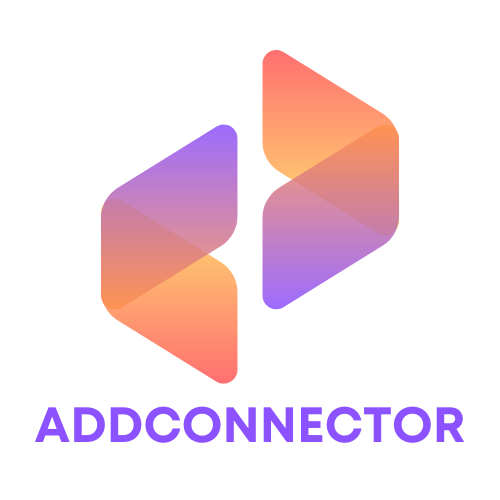In the fast-paced world of software development, Azure DevOps has become the superhero of collaboration and efficiency. But landing that dream job in this realm often hinges on one crucial moment: the interview. He or she who masters the art of Azure DevOps interview questions holds the key to unlocking career success.
Table of Contents
ToggleCommon Azure DevOps Interview Questions
Understanding common interview questions helps candidates prepare effectively for Azure DevOps roles. Familiarity with key concepts and tools can enhance interview performance.
Basic Concepts
Candidates often encounter questions about version control, CI/CD pipelines, and Agile methodologies. What is version control, for example? It’s a system that tracks changes in code, enabling collaboration among developers. CI/CD, or Continuous Integration and Continuous Deployment, automates the software delivery process, reducing manual errors. Agile methodologies emphasize iterative development and collaboration, fostering adaptability in projects. Interviewers might ask for explanations of Scrum and Kanban frameworks, both of which support Agile principles. Discussing these fundamental concepts demonstrates knowledge and readiness for Azure DevOps roles.
Tools and Technologies
Interview questions frequently cover specific tools and technologies used in Azure DevOps. Candidates should know tools like Azure Repos, which supports version control, and Azure Pipelines, enabling CI/CD. Understanding Azure Boards can show familiarity with project management and tracking progress. Questions may also address third-party integrations, such as GitHub and Docker. Familiarity with security tools related to Azure DevOps is valuable, too. Articulating experiences with automated testing frameworks often impresses interviewers, showcasing a candidate’s practical knowledge. Awareness of these tools enhances a candidate’s appeal to potential employers.
Advanced Azure DevOps Interview Questions

Candidates should expect advanced questions reflecting deeper knowledge of Azure DevOps. Interviewers may focus on CI/CD pipelines and Infrastructure as Code, as these concepts are vital for success in Azure DevOps roles.
CI/CD Pipelines
CI/CD pipelines streamline the process of integrating code changes and deploying applications. Candidates might encounter questions about the specific stages within a pipeline. For example, they should describe how build, test, and release stages work together. Understanding triggers is essential. Candidates must explain how continuous integration and continuous delivery principles improve software quality. Familiarity with Azure Pipelines and their integration with version control systems enhances a candidate’s value. Knowledge of build agents, deployment environments, and approval gates is also critical. Discussing automated testing practices within pipelines showcases practical experience.
Infrastructure as Code
Infrastructure as Code refers to managing and provisioning computing infrastructure using code. Candidates may be asked to define this concept and its benefits, such as consistency and repeatability. Common tools, including Azure Resource Manager templates and Terraform, often arise in discussions. Interviewers may seek explanations of how version control applies to infrastructure changes. Candidates should illustrate the differences between declarative and imperative approaches to infrastructure management. Emphasizing automation in provisioning and configuration highlights the efficiency of this approach. Finally, understanding best practices for testing infrastructure as code can set candidates apart.
Scenario-Based Questions
Scenario-based questions assess practical understanding and problem-solving skills in Azure DevOps. Candidates must demonstrate their ability to apply theoretical knowledge in real-life situations.
Problem-Solving Scenarios
Faced with a build failure in Azure Pipelines, an interviewer might ask a candidate to troubleshoot the issue efficiently. Candidates must explain how they would identify the source of the failure by reviewing logs and running diagnostic tests. Another scenario could involve a team struggling with integration issues between Azure Repos and an external Git repository. Here, candidates should describe their approach to resolving conflicts, merging code, and ensuring that teams collaborate effectively.
Real-World Applications
Candidates may get questions about deploying applications using Azure DevOps. They should discuss utilizing CI/CD pipelines to automate deployments, noting the importance of different stages such as build, test, and release. Another real-world application could focus on scaling deployments across multiple environments, including production and staging. Here, candidates must showcase knowledge of Infrastructure as Code principles, demonstrating expertise with tools such as ARM templates or Terraform to manage resources more efficiently.
Behavioral Questions
Behavioral questions during Azure DevOps interviews assess candidates’ interpersonal skills and situational judgment. Understanding how to demonstrate past behaviors in relevant scenarios can significantly influence hiring decisions.
Team Collaboration
Azure DevOps thrives on teamwork. Candidates should share examples of successful collaboration in software development projects. Discussing experiences where they contributed to Agile ceremonies, such as daily stand-ups or sprint planning, showcases an understanding of team dynamics. Demonstrating proficiency with tools like Azure Boards for tracking work items and emphasizing accountability within teams strengthens their narrative. Additionally, expressing adaptability in cross-functional environments reveals capability to work with various stakeholders.
Conflict Resolution
Conflict resolution skills hold importance in team environments. Candidates can reflect on situations where differing opinions arose during project lifecycles. Illustrating methods used to facilitate productive discussions and reach consensus highlights their leadership potential. Mentioning strategies like active listening or seeking compromises showcases their commitment to maintaining a positive team atmosphere. Candidates should also address outcomes from resolved conflicts, emphasizing lessons learned for future challenges.
Mastering Azure DevOps interview questions is essential for anyone looking to excel in the field of software development. Candidates who understand the core concepts and tools not only enhance their technical skills but also improve their chances of impressing potential employers.
Being prepared for both technical and behavioral questions allows candidates to demonstrate their problem-solving abilities and interpersonal skills. By showcasing real-world applications and experiences, they can effectively communicate their value to a team.
Ultimately, thorough preparation and a clear understanding of Azure DevOps principles will set candidates apart in a competitive job market.



